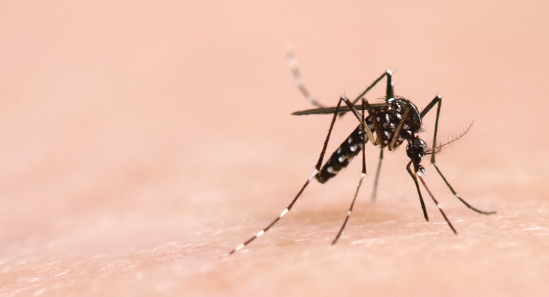In Burkina Faso, the National Agency of Biosafety (NAB) is set to authorise the release of genetically modified mosquitoes in the coming weeks. Since 2012, the village of Sourkoudiguin has been a focal point for the Target Malaria project. Financed to the tune of $70 million (almost €60 million) by the Bill and Melinda Gates Foundation, the project aims to release 10,000 genetically modified Anopheles gambiae mosquitoes “in several villages in the region to combat malaria, the main cause of death in Burkina Faso”. This release should be “the first step in the study prior to testing a more complex technology, namely gene drive, developed in the early 2000s by Imperial College London”.
“These genetically modified mosquitoes are sterile males”, explained Doctor Abdoulaye Diabaté, the main project coordinator. “When they mate with wild female mosquitoes, the eggs will not reach maturity—hence no young will be produced. As far as he is concerned, “approximately 20 insect generations are required, i.e. it should take less than two years” to have a major impact.
Raising project awareness amongst the indigenous populations is not without its problems and the desire for dialogue “contrasts with on-site reality”. After the researchers had left, one inhabitant of Pala voiced regret: “If I had known, I would have asked them, ‘And what if it doesn’t work? What are the risks for our village?'” Another could not hide his concerns: “I wonder how they can capture modified mosquitoes once they’ve been released, if there’s a problem. But they reassured us that they would recognise them”. A primary school teacher in Sourkoudiguin asked: “How do you translate GMO into dioula?” He added that: “I think that the locals do not understand everything. They have been told that the aim is to wipe out malaria but they are the ones thrown in the deep end”.
The Citizens’ Collective for Agroecology has organised a march to Ouagadougou to demonstrate against the Target Malaria project. They want answers to the following questions: “Could modifying the gene of an insect create mutants that would transmit other diseases? This also raises the ecology issue: a reduction in this species poses the risk of an ecological vacuum, thereby1disrupting the food chain. There are so many doubts—we do not consent to being used as guinea pigs”. In this country, which has already dealt with Monsanto’s failed genetically modified cotton experiment, there is general concern about the lack of information given to locals (see Release of GMO mosquitoes – the people of Burkina Faso react).
Director of the NAB laboratory, Oumar Traoré, gives reassurance: “We are assessing the potential threats to the environment and human and animal health. There is no such thing as zero risk but the necessary mechanisms must be in place to manage any problems. Otherwise, we will not authorise the project”.
Every year, malaria claims almost 440,000 lives around the world. 9.8 million cases were reported in Burkina Faso in 2016, culminating in 4,000 deaths.
Le Monde, Sophie Douce (29/06/2018) – Des moustiques OGM contre le paludisme : le projet qui fait débat au Burkina

